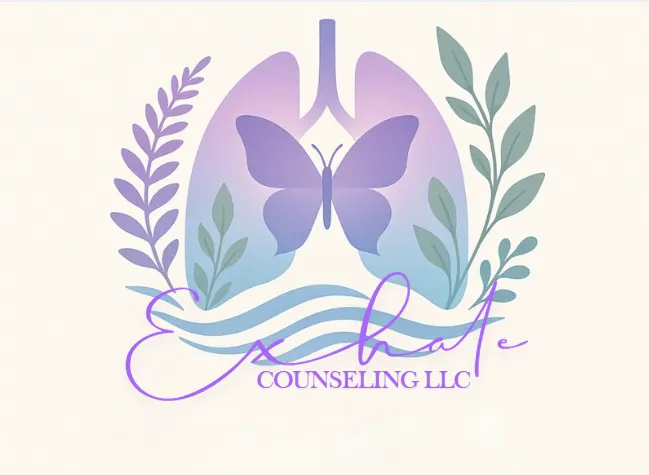Blog
Encouragement and insights for the journey ahead.
By Emily Miller
M.A. (Marriage & Family Therapy), LAC

Battling Anxiety
Anxiety: When Your Brain Hits the Gas With No Road Ahead
Understanding, noticing, and working with your anxious mind
Let’s talk about anxiety. Not the watered-down version we casually mention (“Ugh, I’m so anxious about this meeting”), but the kind that hums under your skin, lives in your chest, and makes even the smallest tasks feel like climbing a mountain in flip-flops.
Anxiety isn’t always panic attacks and hyperventilating.
Sometimes, it’s over-apologizing.
Sometimes, it’s procrastinating because your brain is spinning.
Sometimes, it’s walking into a room and instantly thinking, “I don’t belong here.”
It wears a lot of masks. And the more we understand it, the less power it has to take over.
So... What Is Anxiety, Really?
At its core, anxiety is your body’s alarm system. Built to protect you from danger.
It’s your nervous system’s way of saying:
“Hey! Something feels off. Let’s prepare for the worst just in case.”
And honestly, that’s not a bad thing when you’re facing real danger, like a bear or a fire.
But when your brain mistakes everyday stress for imminent threat (a deadline, a hard conversation, a social event), the alarm still goes off… and keeps going.
That’s when anxiety becomes chronic. Unhelpful. And exhausting.
What Anxiety Can Look Like (It’s Not Always Obvious)
Here are some common symptoms of anxiety (even the sneaky ones):
Racing thoughts
Overthinking every interaction
Muscle tension, headaches, clenched jaw
Trouble falling or staying asleep
Irritability (Snappiness can be anxiety, too!)
Nausea or stomach issues
Feeling frozen when too many choices are in front of you
Constant fear of disappointing people
Always feeling like something bad is about to happen… but you can’t explain what
If this feels familiar, you’re not alone. Anxiety is one of the most common mental health struggles…and it’s treatable.
What Helps When Anxiety Shows Up
1️) Awareness First
You can’t manage what you don’t recognize. Start by noticing your patterns:
“Oh, I’m spiraling.”
“My thoughts are racing.”
“This isn’t danger — this is anxiety.”
The moment you name it, you start to regain control.
2️) Make It Physical
Anxiety isn’t just mental, it’s also sensory. So we need to include the body.
Try:
Cold water on your face or hands
Stretching or shaking out your arms and legs
Going for a short walk (movement helps regulate adrenaline)
Deep belly breathing: In for 4, hold for 4, out for 6
Get back in your body. It reminds your brain that you're safe.
3️) Shrink the Problem
When everything feels urgent, anxiety grows big. Break it down.
Ask:
“What do I need to do right now?”
“What’s my responsibility here?”
“Can I write it out to organize my thoughts?”
Clarity shrinks chaos.
4️) Don’t Isolate
Anxiety thrives in silence. Tell someone you trust:
“Hey, my anxiety is really loud right now.”
“Can you talk me through this?”
“I just need someone to listen, no fixing needed.”
You don’t have to do this alone. People want to help, and it’s okay to need them.
When It’s Time to Reach Out
If anxiety is:
Interfering with your work, relationships, or rest
Making daily tasks feel impossible
Causing panic attacks or constant overwhelm
Taking more from your life than it’s giving
…it’s okay to reach out to a therapist.
Therapy (CBT, DBT, mindfulness-based approaches) can help you understand the roots of your anxiety and teach you how to respond instead of react.
You might also want to consider talking to your doctor about medication options if you need more support. Medication doesn’t make you “weak”, and you don’t have to be on it forever. It can give your brain the support it needs while you do the work.
Takeaway: You’re Not Failing — You’re Feeling
Anxiety doesn’t mean you’re broken.
It means your brain cares a lot about safety, control, and connection.
So next time anxiety shows up, try saying this:
“Thank you, brain, for trying to protect me.
I see you. I hear you. But I’ve got this now.”
You are not your anxious thoughts.
You are not your fear.
You are capable of calm, courage, and clarity. Even if it’s one breath at a time.
And healing starts with understanding, not judgment.
Start Your Journey Today
Begin your journey towards a happier and more fulfilling life today.
This is a supervised private practice. It is owned and managed by a master’s-level, non-independent licensee under Board-approved clinical supervision pursuant to A.A.C. R4-6-211. The Board approved clinical supervisor of this practice is:
Name: Rachel Sommerfield, LPC, MC, ADHD-CP
Phone: (520)509-5371
Email: [email protected]



Facebook
Instagram
TikTok